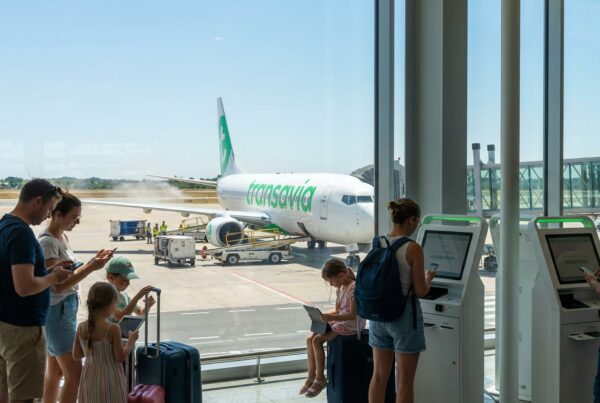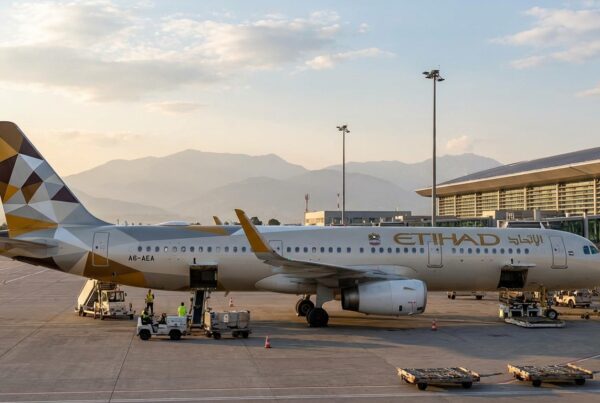Discreetly adopted this summer, the decree 2025-772 is causing considerable concern among travellers and air transport professionals. By modifying the procedures for access to justice and compensation, this text calls into question practices that seemed to have been established since the entry into force of the Regulation 261/2004. Flywest has closely followed the reactions of associations and industry players: the consequences for European passengers could be far-reaching.
This dossier explains, in no uncertain terms, what the decree changes for passengers, what this means in practical terms in the event of delays, cancellations or overbooking, and what measures to take to protect their rights.
What Decree 2025-772 changes for travelers
The text introduces procedural measures which, according to its critics, make access to the courts more cumbersome and reduce the chances of obtaining a fair hearing. compensation fast. Among the most talked-about measures are the introduction of a mediation before any legal action is taken, the introduction of invoiced service of documents, the end of free access to certain procedures and the prohibition of corporate actions. Flywest reports that the Association pour les droits des passagers aériens (APRA) and several magistrates believe that these changes weaken the effectiveness of the rights recognized to travelers.
A procedural barrier that may discourage claims
In practical terms, these changes are likely to increase delays and costs for a passenger wishing to assert a claim. Compulsory mediation may mean additional months' waiting before accessing a court, and costs of service may make recourse economically unviable for small amounts. The likely result is a drop in effective redress, even where the right to compensation is clear.
Consequences for companies, agencies and the travel ecosystem
For carriers, this decree offers procedural leeway that can reduce the financial pressure associated with claims. For agencies, platforms and assistance offices, the increased complexity of customer files will require more resources and more robust internal processes. Insurers and travel specialists will have to reassess their offers and contractual clauses to take account of a transformed national framework.
Risk of fragmentation between national and European law
The decree raises a major legal question: how to reconcile these new national rules with the primacy of European Union law and the useful effect of the Regulation 261/2004 ? Flywest recalls that several players are calling for compliance monitoring by European institutions to preserve the uniformity of passenger rights across the continent.
What can passengers do today?
When faced with this situation, it's essential to adopt a proactive attitude. Keeping all travel documents, tickets, boarding passes, written exchanges with the company and proof of additional expenses is the first step. Informing yourself about the amicable procedures offered by the company, and documenting each stage, strengthens a file in the event of mediation or subsequent recourse. Consumer associations and specialized law firms can also guide travelers towards the most appropriate means of dispute resolution.
Practical advice to limit risks
Before buying a ticket, read the general conditions of carriage carefully, check the insurance cover included or available as an option, and prefer payment methods that facilitate proof (credit card, written confirmation) are simple but effective gestures. In the event of disruption, acting quickly to notify the company, keeping photos and invoices, and requesting written acknowledgement of receipt consolidates the passenger's position.
Outlook: towards a legal and political showdown
The debate on access to justice and consumer protection is likely to move into the political and judicial arena. Flywest mentions that APRA is now calling on the European institutions to verify the text's conformity with EU law. In the longer term, the outcome will depend on any challenges before national and European courts, and on the ability of industry players to negotiate practical solutions for travellers.
Key information
Decree : 2025-772published in August 2025, modifies the conditions of recourse for air passengers in France.
Main measures : mandatory mediationThe company's new policy is based on the following principles: the end of free access to certain procedures, service of documents subject to a charge, and a ban on class actions.
Impact on travelers: longer delays, higher procedural costs, risk of forgoing small claims.
Recommended actions: keep all proof of travel, document exchanges, check insurance and conditions of sale, contact consumer associations and specialized assistance services.
Follow-up: Flywest will continue to cover legal developments and the reactions of stakeholders to keep passengers and air transport professionals informed.




